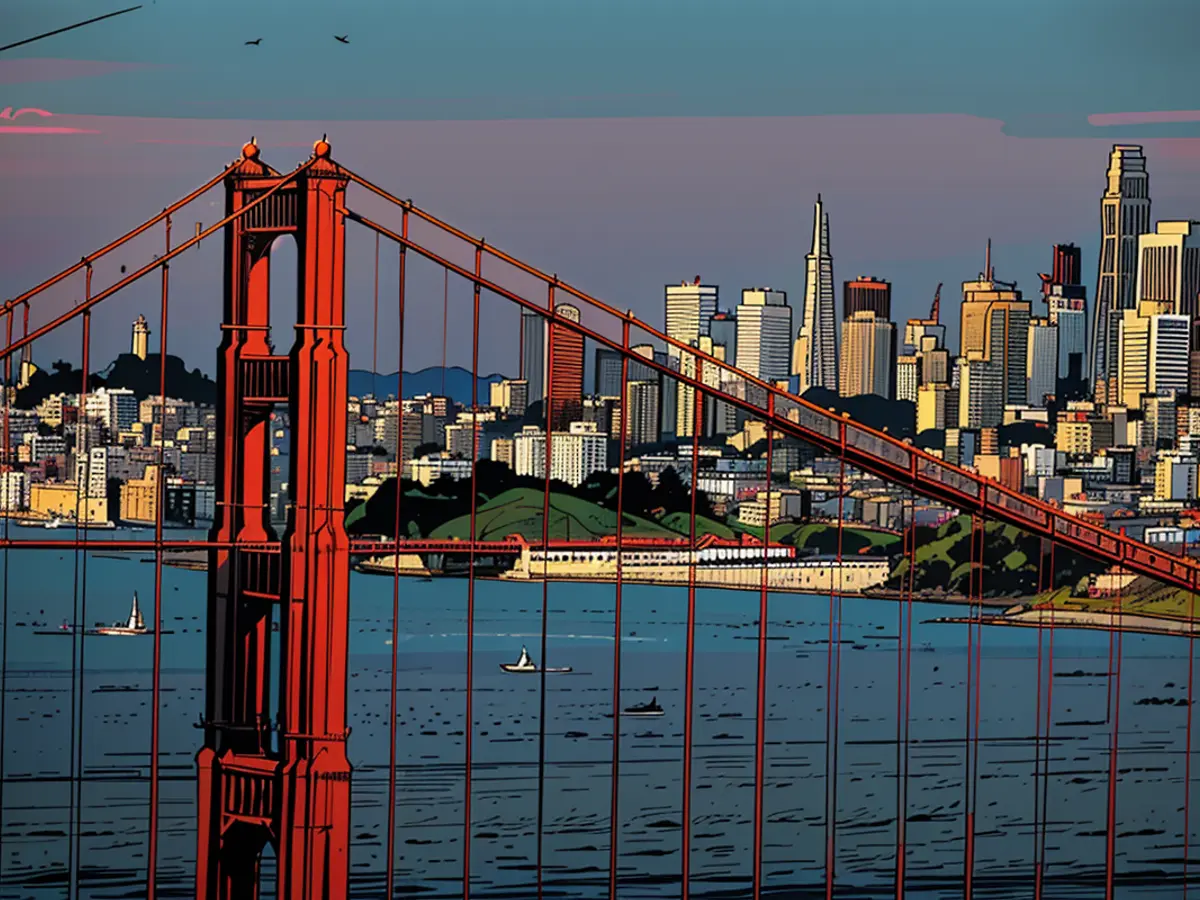San Francisco is engaging in internal conflicts concerning a Supreme Court case that appears to be in its favor.
Due to a strange situation involving wastewater discharge into the Pacific Ocean, San Francisco, recognized for its progressive politics, finds itself aligning with the oil and gas sectors, triggering a conflict that the Supreme Court's 6-3 conservative majority could potentially utilize to weaken water pollution regulations nationwide.
"We're establishing a playbook for numerous polluters," expressed Scott Webb, vice chair of the Sierra Club San Francisco Bay Chapter, finding it hard to believe this is coming from San Francisco.
Recently, San Francisco's board of supervisors voted 8-2 to urge city authorities to swiftly settle the lawsuit, warning that a favorable Supreme Court verdict could negatively impact water quality across the nation. However, this resolution was not legally binding, and the city's lawyer indicated no intention of backing down.
"I'm anxious about taking this to the conservative court," mentioned San Francisco Supervisor Myrna Melgar to CNN, emphasizing she was not commenting on the city's legal strategy but rather expressing concerns about the repercussions of presenting an environmental case before a conservative bench. "We risk having this apply to everyone."
The apprehension arises from the court's conservative justices repeatedly opposing the Environmental Protection Agency (EPA) in recent years and limiting the power of federal agencies to act without explicit congressional authorization. Both factors suggest a victory for San Francisco.
However, some San Franciscans are concerned about this outcome.
City attorney: San Francisco will not yield
Beneath the political drama lies a dispute over San Francisco's sewer system, which, like many cities, struggles to fully treat all wastewater following heavy downpours. When a treatment facility reaches capacity, the city resorts to pumping partially treated sewage into the Pacific Ocean.
For decades, the EPA set limits under the Clean Water Act on the amount of "effluent" the city could release into the sea. In 2019, federal regulators also mandated the city to comply with two generic provisions, including a requirement that any discharges "not cause or contribute to a violation of any applicable water quality standard...for receiving waters."
City officials argue that this standard is unclear. David Chiu, San Francisco's city attorney, claimed the EPA's requirements make the city liable for enforcement actions without providing specific targets for acceptable sewage levels. In turn, he asserted that this leaves San Francisco responsible for the overall water quality of the Pacific Ocean.
"It's an unattainable standard. We've been seeking clear guidance, and the EPA hasn't provided specific answers," Chiu told CNN. "Cities and counties from across the country are joining our cause to seek clarity."
Chiu rejected demands for the city to settle the lawsuit.
"The answer is no," he stated, adding that addressing sewer overflow issues comprehensively would cost city residents billions of dollars.
Wastewater management agencies from numerous cities, including Boston, New York, Tacoma, Indianapolis, and Louisville, have aligned with San Francisco.
The National Mining Association, the American Petroleum Institute, and the American Chemistry Council have also submitted briefs supporting San Francisco due to fears of becoming responsible for the overall water quality.
In essence, a win for San Francisco could undermine the EPA's ability to regulate a broader range of polluters. And this has caused concern among those following the case.
"What's occurring is tactically short-sighted on all sides," said Dave Owen, a law professor at the University of California San Francisco. "EPA and San Francisco, by taking this case to the conservative Supreme Court, risk putting a piece of state and federal authority in jeopardy."
Conservative justices oversee EPA losses
The dispute has reached the Supreme Court at a time when the EPA has experienced a series of significant setbacks from the court's conservative bloc.
In June, a 5-4 majority dismantled President Joe Biden's effort to lower smog and air pollution that crossed state lines, known as the "good neighbor" rule. A year prior, the court reduced the EPA's ability to manage wetlands under the Clean Water Act.
In 2022, the court limited the EPA's power to regulate carbon emissions from existing power plants.
The court has also progressively weakened the power of federal agencies in recent years in cases not related to the environment.
In a major decision this summer, a 6-3 majority overturned a 1984 precedent that instructed courts to defer to federal agencies interpreting vague laws. The 9th US Circuit Court of Appeals relied on this precedent while supporting the EPA in the San Francisco case last year.
The Clean Water Act, established in 1972, grants the EPA the authority to set specific discharge limits and "any more stringent limitation" the agency views as "necessary to meet water quality standards."
The Biden administration argues that this extensive language "unambiguously establishes" that EPA has the power to impose broad requirements on polluters beyond specific discharge limits.
Earlier this year, in a case concerning rioters on January 6, 2021, a 6-3 majority refused to interpret a "catch-all" provision of another law as granting broad authority to prosecute mob members on obstruction charges. This was because, like the Clean Water Act, the provision at issue within the criminal statute followed more specific language dealing with evidence tampering.
Environmentalists fear a similar interpretation of the Clean Water Act could have devastating consequences.
Webb, the Sierra Club advocate, described the city's approach as "risky."
"It's a rather bold game of chicken they're playing," he stated.
"This legal battle in San Francisco is raising concerns among environmental advocates, with Scott Webb of the Sierra Club San Francisco Bay Chapter expressing his surprise at the city's alignment with the oil and gas sectors in politics."
"Given the conservative majority in the Supreme Court, there are concerns that a favorable decision for San Francisco could set a precedent that weakens environmental regulations for polluters nationwide, as warned by San Francisco's board of supervisors."








